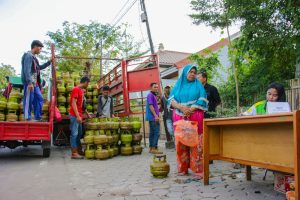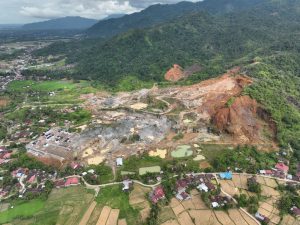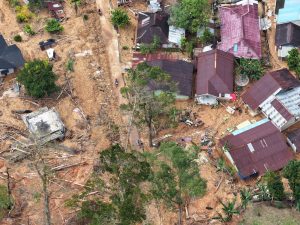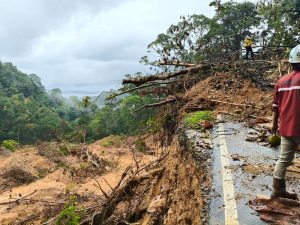Jakarta – The new administration of President Prabowo Subianto and Vice President Gibran Rakabuming Raka faces a significant challenge in accelerating the energy transition to achieve the net-zero emissions (NZE) target by 2050. According to the Institute for Essential Services Reform (IESR), an urgent concrete step is to increase investment in the renewable energy sector to 20 times the current level.
IESR Executive Director Fabby Tumiwa stated that the government must take immediate action to accelerate the energy transition.
“Investment in the renewable energy sector is still far from sufficient. In 2023, investment was recorded at only USD 1.5 billion. In contrast, we need around USD 40 billion to USD 50 billion per year starting 2025 to achieve the NZE 2050 target,” Fabby said in a written statement on Wednesday, October 23.
To realize this ambitious target, Fabby emphasised the need for synergy between ministries. The Ministry of Energy and Mineral Resources (ESDM), the Ministry of Investment, the Ministry of SOEs, and Bappenas must work together to create policies that support a more conducive investment climate.
“The government needs to review policies, regulations, and licensing processes that currently hamper renewable energy investment,” he added.
Fabby also highlighted the importance of international collaboration, especially with China, as one of the strategic partners in supporting Indonesia’s energy transition.
“Cooperation with China can be utilised for renewable energy infrastructure investment, clean technology supply chain development, and decarbonisation of the mineral processing industry,” Fabby said.
Based on data from the Central Bureau of Statistics, China is one of the largest investors in Indonesia, with an investment value of USD 7.44 billion in 2023.
“If the government is serious about achieving NZE by 2050, then investment in renewable energy must be increased up to 20 times from today,” he said.
In addition, Fabby underlined the need for a clear strategy in attracting concessional funding for implementing the Just Energy Transition Partnership (JETP) and the National Electricity General Plan (RUKN).
IESR Climate and Energy Diplomacy Program Manager Arief Rosadi added that Indonesia and China have an excellent opportunity to strengthen cooperation in energy transition.
“Collaboration with China is a strategic opportunity that can support the development of renewable energy infrastructure in Indonesia and provide access to sustainable financing,” Arief said. He explained that green investment standards in both countries, such as the Green Taxonomy in Indonesia and the Green Investment Principle in China, can be harmonised to facilitate this collaboration.
Meanwhile, the government is also expected to prioritize the development of the clean energy industry supply chain, including energy storage, which is one of the keys to ensuring the sustainability of renewable energy-based electricity supply.
“Indonesia has great potential, but without sufficient investment, NZE’s ambitions will be difficult to achieve,” Fabby concluded. (Hartatik)















